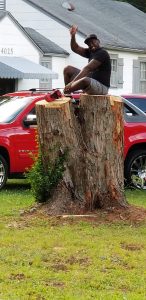Hey there,
Come walk this through with me as I tell you about the impact of my cohort and I’s recent visit to the CHOICES Women’s Center in Queens, New York. It was a transformative experience in the sense that I got to confront my own cultural upbringing, grapple with the topic of abortion, and reaffirm my commitment to women’s autonomy and reproductive rights.
Growing up in Saudi Arabia and living in Ethiopia, as I tell you every week, I was no stranger to the taboos and legal restrictions surrounding abortion. The subject was shrouded in silence, and access to safe reproductive healthcare was severely limited, if not illegal, due to cultural and religious norms. As I entered CHOICES, I carried with me the weight of these societal norms, which had been deeply ingrained in my understanding of women’s bodies and choices for a long time.
Meeting Merle Hoffman, the founder of the CHOICES Women’s Center, was awe-inspiring. Listening to her life experiences and her unwavering commitment to providing a comprehensive and safe space for women seeking reproductive healthcare left a lasting impression on me. It was empowering to be in the presence of someone who had dedicated her life to advocating for women’s rights, especially in the face of the polarization surrounding abortion in the United States.
Before our visit, I had the opportunity to discuss the articles “Your Body, My Choice” by Dayna Tortorici and “The 13th Amendment Case for a Right to Abortion” by Liz Anderson with my cohort. These readings provided a fresh perspective on the historical and legal context surrounding abortion rights, challenging what is supposed to be the “traditional” narrative.
As I delved into the essay by Liz Anderson, I was struck by the connections drawn between the 13th Amendment and abortion rights. The historical understanding of slavery, as elaborated by Tucker, made me understand the broader implications of the 13th Amendment, which bans not only chattel slavery but also “the badges and incidents of slavery.” This includes any treatment that would mark someone as slave-like, which put into context how the civil disabilities faced by women in the 19th century due happened to the law of coverture.
Through this lens, I began to see the parallels between the struggles faced by enslaved Black women and the civil slavery endured by married women. Recognizing that abortion bans were rooted in the assumption that women lacked equal rights to their bodies and their choices, I understood that the fight for abortion rights is intricately linked to the fight against systemic injustice.
The CHOICES Women’s Center visit, coupled with these readings, reinforced my belief in the significance of individual autonomy and the right to make choices about one’s body without judgment or interference. It was clear to me that upholding reproductive rights is not just about protecting legal access to abortion but also about dismantling the deeply ingrained norms and biases that limit women’s freedom and agency. While I didn’t have a sudden life-changing epiphany, being in the presence of such fierce advocates reaffirmed my commitment to championing women’s rights. It’s not about becoming a completely different person overnight, but rather taking small steps to challenge the status quo and empower women in my own community.
CHOICES showed me that being a part of a movement doesn’t require grand gestures. It’s about showing up, being empathetic, and amplifying the voices of those who need it most. Even working the front desk of such a center sends a message. It shows a commitment to taking action and playing a part in fostering a world where women can make their own choices without judgment or fear. Any journey towards change won’t be instantaneous or without obstacles. It requires constant self-reflection and an ongoing commitment to advocate for women’s rights, especially for those who are marginalized and face the greatest challenges in accessing healthcare.
For me, this experience has ignited a fire within, urging me to actively challenge cultural norms and support organizations like CHOICES Women’s Center in college. As I wrap up this reflection, I hope it encourages you to reflect on your own beliefs, actions, and the ways in which you can contribute to a more inclusive and equitable world. Let us continue this journey together, advocating for the rights and autonomy of all individuals, regardless of their gender or cultural background.



